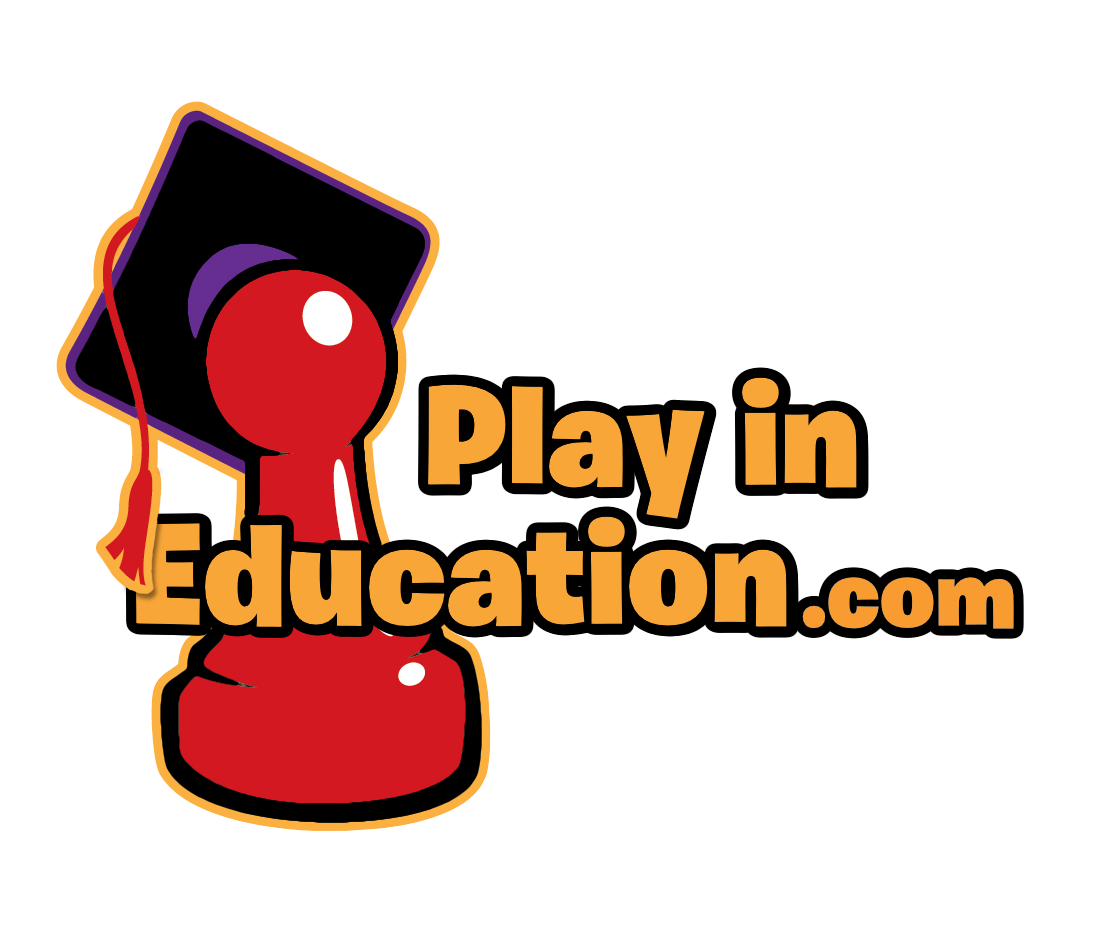|
|
Play in Education (PIE) News August 2021
|
|
Hello from all of us at People of Play!
As summer wraps up, we are enjoying our last adventures in
the sun and beginning to look towards the new school year.
In this newsletter, we invite you to learn more about a few
different approaches to reaching students by involving play.
From a study exemplifying the importance of independent
play, to a STEM program that diverts students from harmful
paths, to outdoor play for children, and Zoom play for
higher education students, we hope this newsletter can offer
a new perspective on how you can bring play to the students
in your life this fall. Enjoy the rest of your summer!
Lucy Santiago, Summer Editor
|
|
Articles!
|
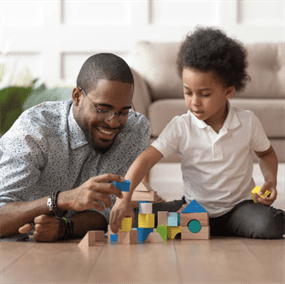
|
Parental Over-Engagement Linked to Poorer
Self-Regulation in Kindergartners
|
|
A recent study by developmental psychologist
Jelena Obradović explores the relationship
between
parental engagement and a kindergarten-aged
child’s ability to regulate their emotions.
After
careful, moment by moment analysis of
parents’ behavior, they found that children
whose parents
allow them to self-direct more often tend to
do better on tasks that require them to
regulate their
emotions and practice impulse control.
Conversely, children of parents who often
stepped in to
redirect – whether by offering instruction,
feedback, or questions – tended to fare
worse on
self-regulation tasks. This is promising
news for advocates of free play. The results
of this study
indicate that allowing children more
independence helps them to build the
important skills of
self-regulation: they will be more
emotionally resilient, able to recover from
upsets, and have more
control over their impulses. The study
offers compelling evidence that stepping
back and letting
children take the lead in their play and
work may be crucial in the development of
self-regulating
skills.
|
|
|
|
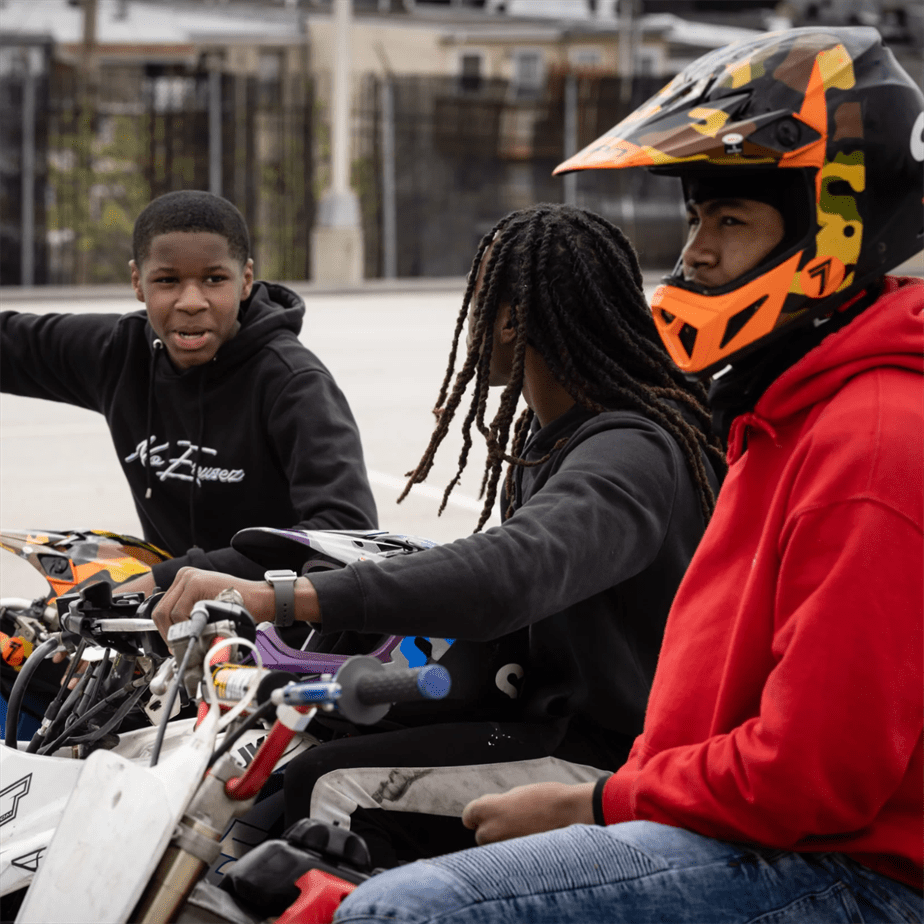
|
STEM Education Program Harnesses Dirt Bike
Culture to Uplift Community
|
|
In Baltimore, Maryland, a non-profit called
B-360 is combining dirt bike culture and
STEM education to create an engaging
environment for students who are often
overlooked. Dirt bike riding is illegal
(though popular) in Baltimore, but B-360
offers young riders a legal place to repair,
ride, and learn about their bikes through
the lens of STEM education. B-360’s
programming is uniquely relevant to their
students’ passion, which cultivates
excitement for learning in a way that
typical education may not. But B-360 is also
keeping its students safer. By keeping their
students off of city streets, the place they
would normally ride, they are protecting
students from dangerous traffic accidents as
well as arrests. Though dirt-biking is a
non-violent offense, an arrest could launch
a young person down a cycle of incarceration
and poverty. Instead, B-360 offers a legal
place to pursue the passion for dirt bikes,
learn important STEM skills, and build
skills that will benefit chances of future
employment.
|
|
|
|
|
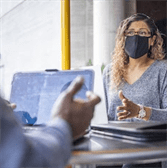
|
Curating Free Play-Focused Resources for
Higher Education
|
|
Pedagogical experts from across disciplines
and around the world have come together with
Equity Unbound to compile a collection of
playful activities to build community in the
higher education classroom. Play is often
overlooked as students age, but studies
reveal that it remains crucial even in
higher education. One of its many benefits
is the building of a classroom community in
which everyone feels welcome and connected,
essential for critical discussion and
engaged learning. But because play is not
often discussed in the world of higher
education, many educators are unsure how to
incorporate it into their classrooms,
especially in the online world. Equity
Unbound’s free resources offer activity
ideas and inspiration for diverse classroom
needs – from introductions, to warmups, to
structured discussions. Additionally, they
offer guidance on designing a course with
community-building in mind. There is even a
place to submit one’s own activity to the
collection. These resources are a concrete,
inspirational way to open educators’ minds
towards including playful pedagogy in the
college classroom.
|
|
|
|
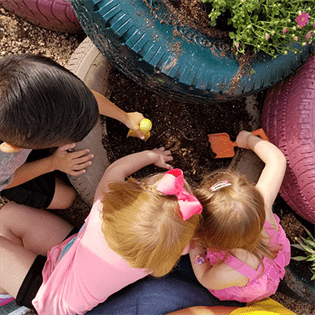
|
ECHO Improves Access to Quality Outdoor Play
for Colorado Children
|
|
For many children, especially those living
in urban environments, outdoor play means
enjoying a playground made of metal and
rubber, or a well-manicured grassy park. But
Early Childhood Health Outdoors, or ECHO, is
working to change that. The project is a
subdivision of the National Wildlife
Federation which aims to create, advocate
for, and offer guidance surrounding
well-designed outdoor spaces focused on
nature. Their goal is to strengthen
children’s bond with the nature around them
by increasing access to high-quality natural
spaces. These spaces often incorporate
natural materials like stones and wood;
sensory elements using plants and earth; and
imaginative play spaces with construction
materials, themed gardens, and pretend play
areas. While these types of spaces are
becoming more common, ECHO has the unique
goal of reaching low-income communities
where they are most needed and least
accessible. They design low-cost
alternatives to expensive outdoor play
structures, and widely share their guidance.
They are currently operating in dozens of
sites in Colorado, but offer webinars to
interested caregivers, educators, and
parents worldwide. ECHO is improving access
to the outdoors for countless children who
may not otherwise have a connection with
nature.
|
|
|
|
|
Interesting Articles From Around the World
|

|
|
|
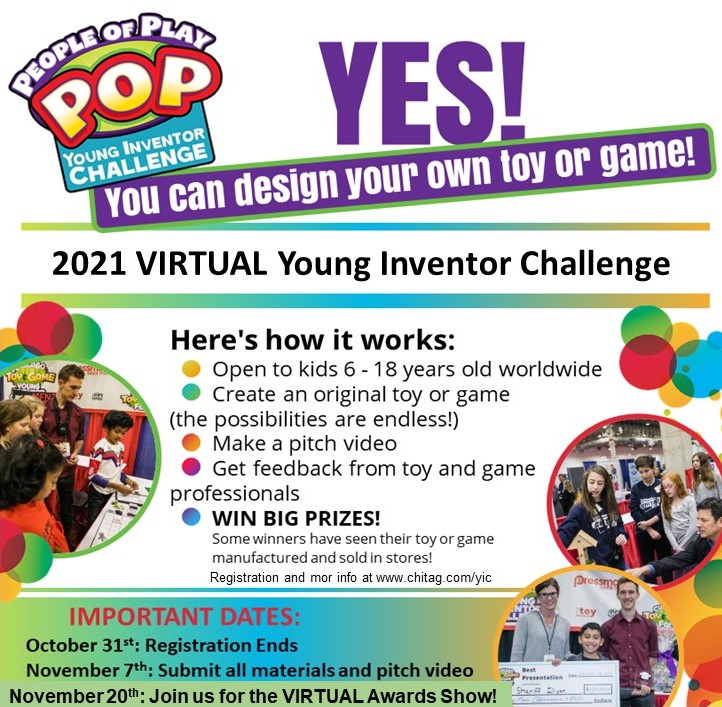
|
3 Truths and a Lie!
|
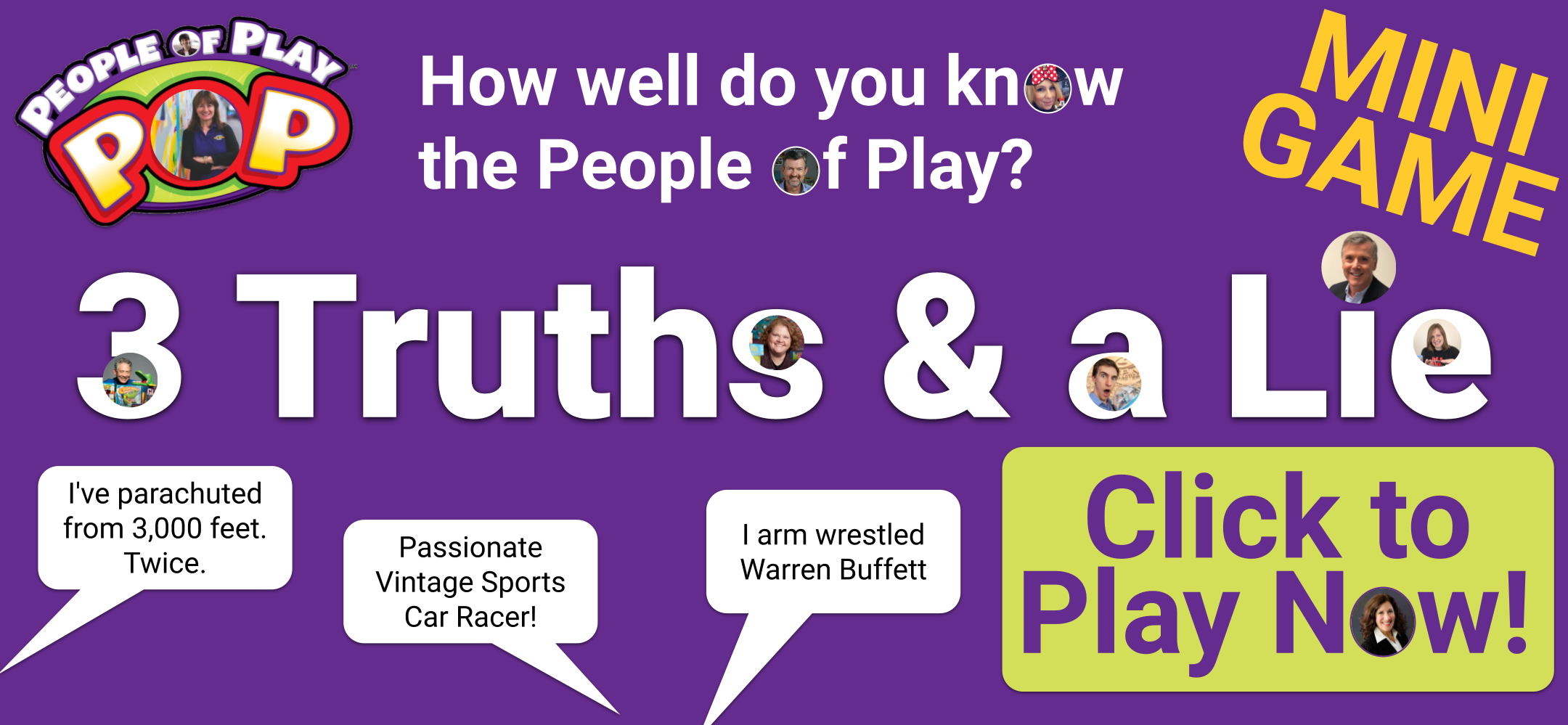
|
 ChicagoToyAndGameWeek
ChicagoToyAndGameWeek
 @ChiTAGWeek
@ChiTAGWeek
 @ChiTAGWeek
#ChiTAG
@ChiTAGWeek
#ChiTAG
|
|
Thank You to Our Esteemed Sponsors!
|
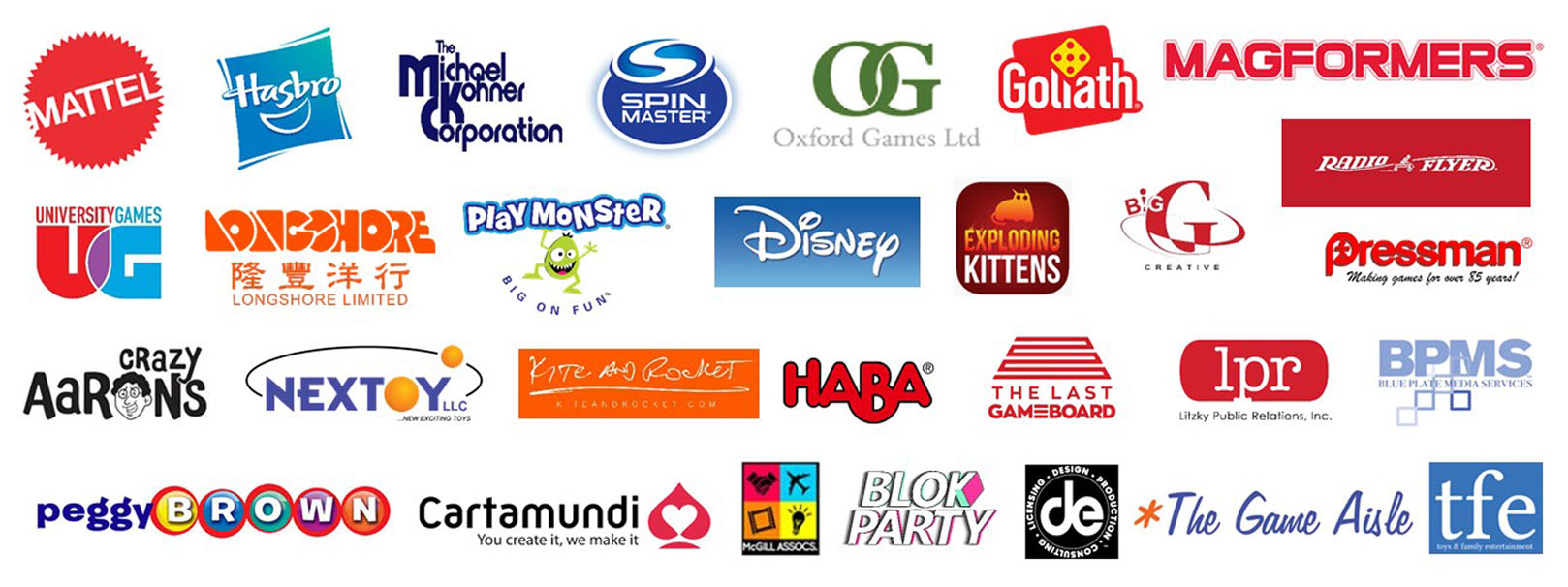
|
